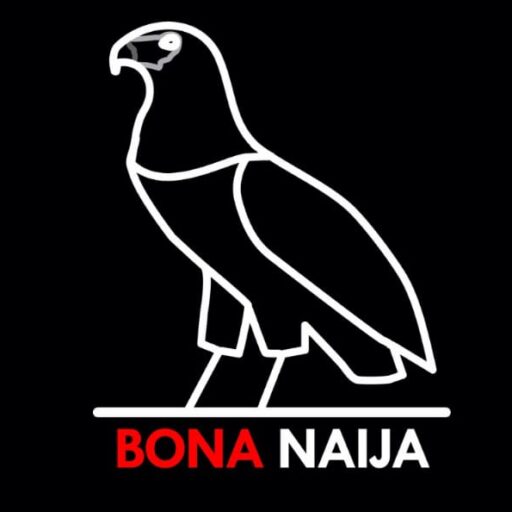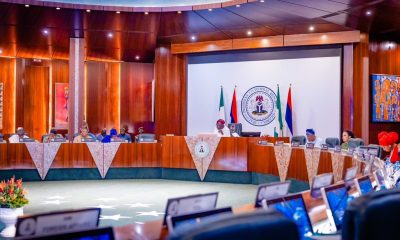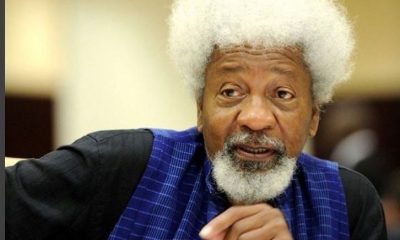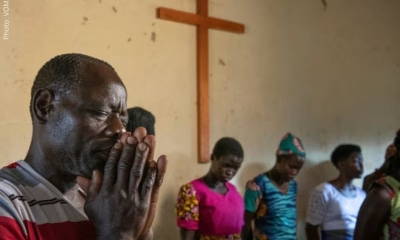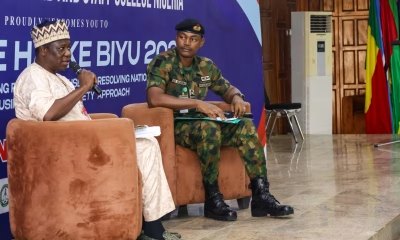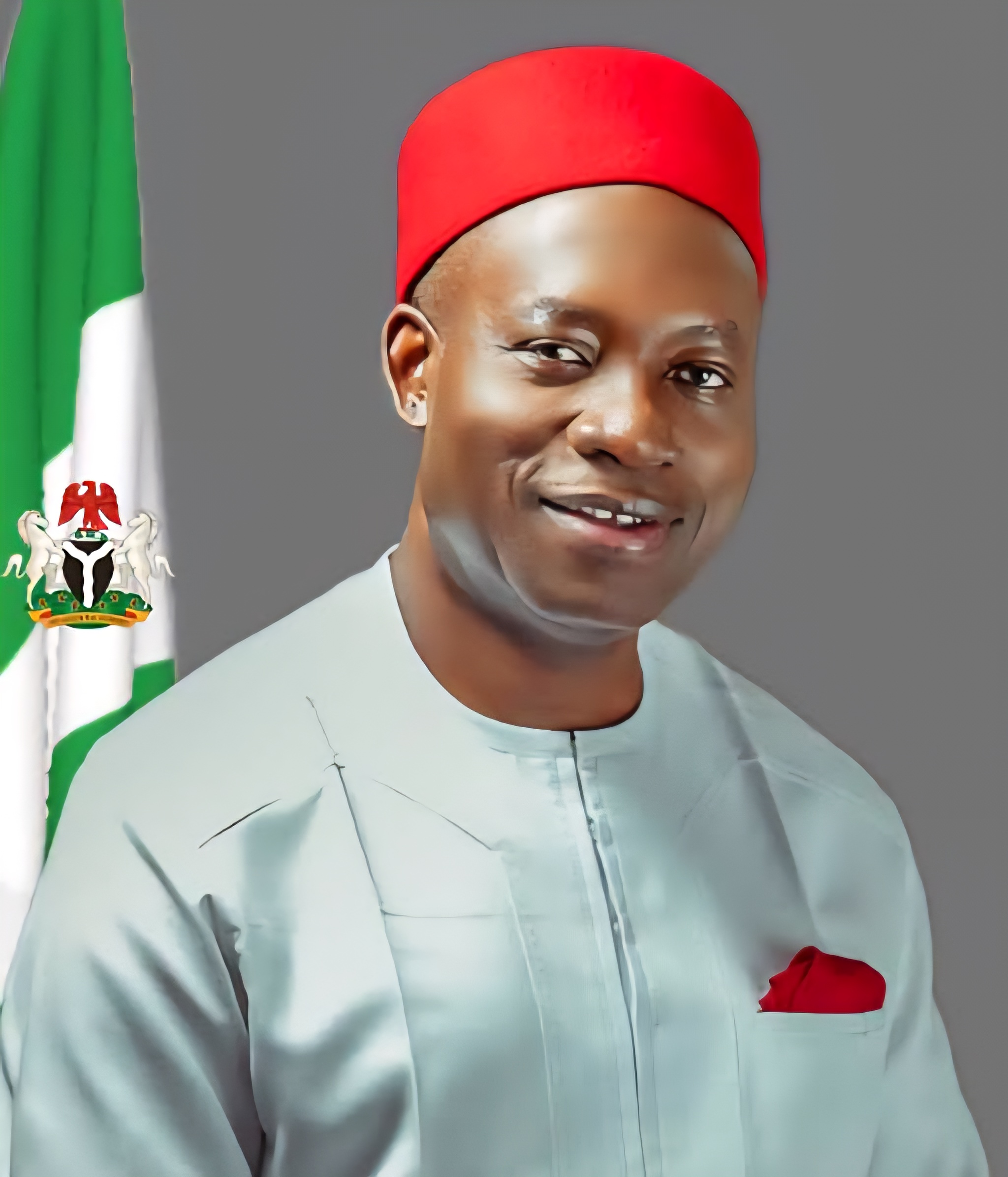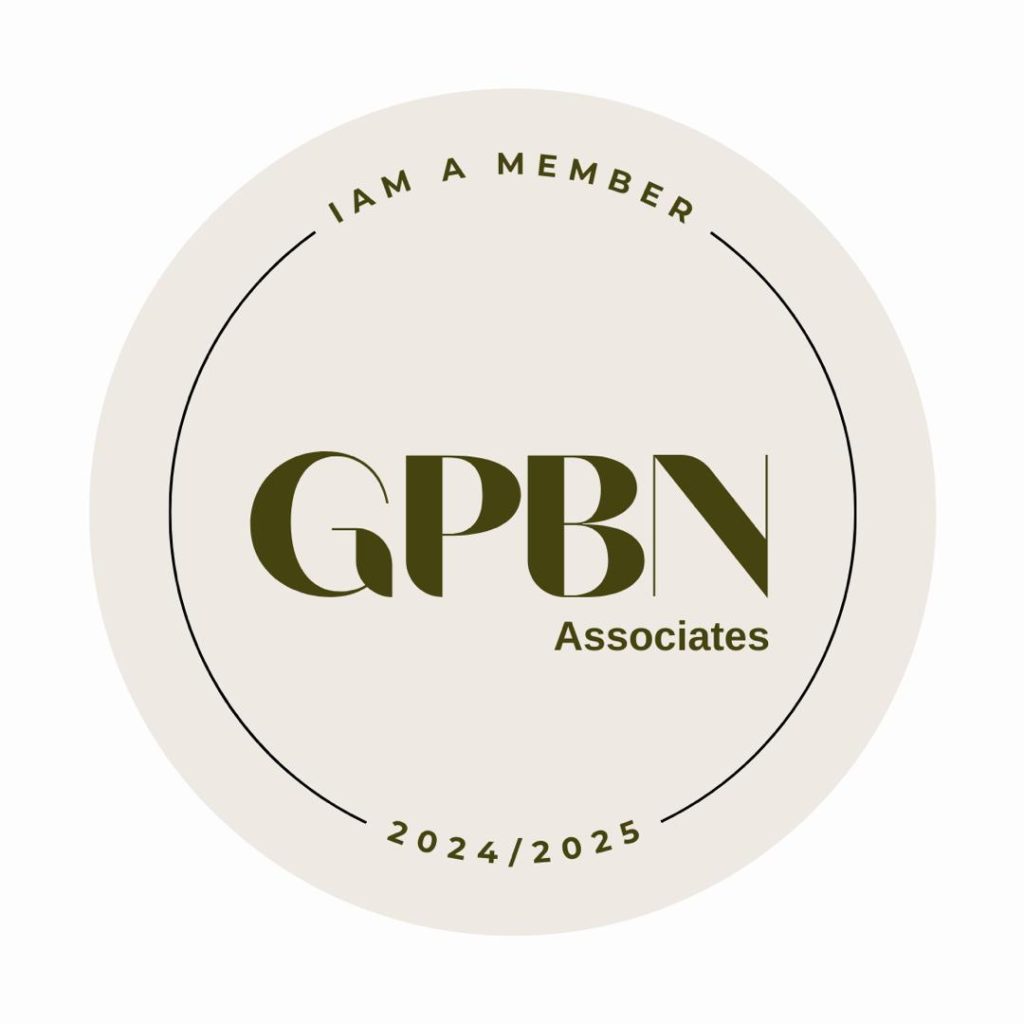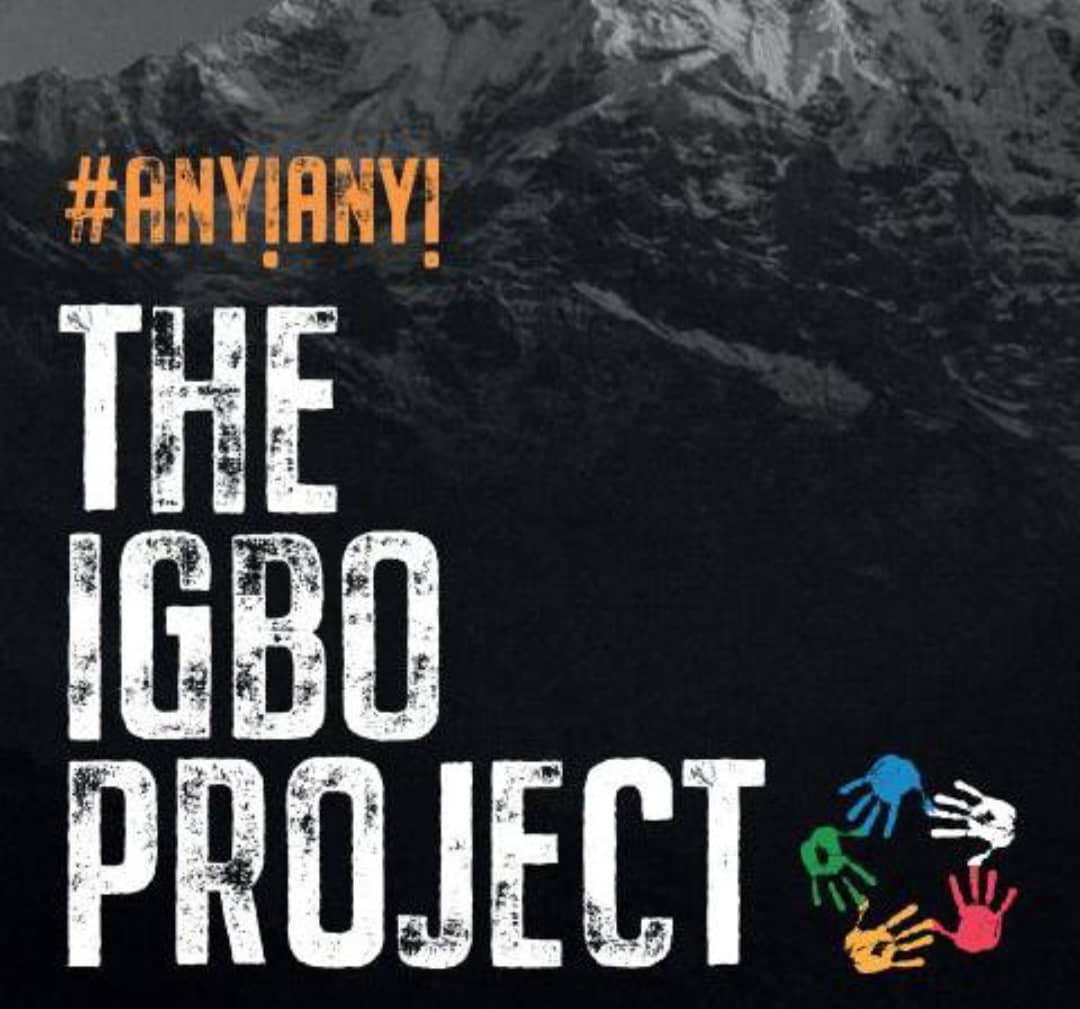

Feature
What Are The Most Important Things Igbos Need From Nigeria?
AnyiAnyi, a group of highly resourceful Igbo professionals and experts gathered from across the globe, led by Anthony Olisa Okolo and Peter Agba Kalu have commissioned “The Igbo Project” which is a bold undertaking aimed at documenting every aspect of Igbo identity in the areas of culture, tradition, religion, social activities, enterprise, arts, family and technology.
As a global brand, #AnyiAnyi’s initiators decided to conduct this research, at this time, in view of the unrest in some areas of Igboland, and the general feeling of disillusionment that pervades Igboland today.
The research aimed to condense all the cries of marginalization raised by the majority in Igboland, with the intention to distil what exactly the Igbos need from Nigeria today. The need to answer the Igbo question within the Nigerian context is essential to peace and stability in Nigeria, and therefore of importance within Africa and by extension, the international community.
In the research, over 20 issues ranging from the frustrations arising from economic inequalities to issues outstanding from the implementation of reconciliation policies after the Civil war. These issues were condensed into these main issues discussed hereunder:
- A prominent School of Thought amongst the respondents were of the opinion that the Igbos are yet to enjoy a full assurance of reconciliation from the Federal Government of Nigeria. The people who hold this view are of the opinion that despite the “No Victor, No Vanquished” motto that led to then 3Rs policy of Reconciliation, Rehabilitation and Reconstruction, Igbos recall that they were abandoned to their fate, impoverished, and forced to suffer to rebuild from nothing while the rest of Nigeria profited from indigenization decrees while the Igbos were on their knees financially. The Federal Government were perceived to have abandoned the reconstruction of Igboland, deliberately avoiding the reconstruction of major commercial interests such as the Onitsha Main Market, which was utterly destroyed during the war, despite being a purely civilian structure. To buttress these points, the proponents of this view allude to the current poor state of Federal infrastructure in Igboland, when compared with other regions. The lack of new infrastructure to cater for the growing population of Igbos is another reason that seems to corroborate this view. As an instance, the premier University of Nigeria, is reported to remain a shadow of its former glory, while less historical institutions in other regions receive abundant Federal subvention, even while UNN’s academic credentials remain more impressive in the local and international stage than other Nigerian universities.
- Followers of this School of Thought are also of the opinion that Nigeria also owes the Igbos apologies for pogroms and killings of its indigenous people in the prelude to the war, during the war, and subsequently, in all the years following the war, down into the present day. The fact that the largely peace-loving and patriotic Igbo is always a soft target for extremist forces to maim, kidnap and murder at various moments in the history of Nigeria, is too delicate a matter to overlook according to this group. Ndigbo insist that the Federal Government should own their wrongs in failing to protect the lives of its Igbo citizens, time and time again, and wish that they would be open to do the rightful restitutions for lives and property lost, running into the millions in human life, and billions in money. One of professionals interviewed about the nature of the restitution responded that reference can be made to the Igbo dossier which was submitted as a presentation to the Oputa Panel. The fact that this dossier was brushed aside, is a pointer to many Igbos of the contempt with which their grievances are viewed by the rest of the country.
- The deprivations that Igbos are made to suffer daily, while conducting the commerce that ensures that Nigerian families have the best quality foods and goods in their households, is another issue that stirs Igbo hearts to anger. The multiple taxations, poor road infrastructure, denial of access to foreign exchange for legitimate trade, high shipping and clearing costs and finally, the lack of deep-sea ports in Igboland, all add to the frustrations across the Igbo citizenry. As the largest trade zone in the country runs from Onitsha to Aba, dredging the River Niger at Onitsha to the depth of a standard seaport is a most reasonable request according to Ndigbo. Historical records support this view. The core trade ports for in pre-independence Nigeria, ran from Akassa to Calabar and to Onitsha. The criminally irresponsible choice to deny Igboland the seaports that would make the most business-sense from a logistics perspective, with regard to shipping along the Atlantic Ocean routes, is only understandable when viewed from the prism that dictates that Igbos must be denied anything that makes life easy for them, or that allows them to prosper.
- As a result of the above, a majority of the survey contributors demanded that Ndigbo should seek autonomy from the Federal Republic of Nigeria. This means devolution of power so the Igbos can pursue economic development on their own terms. This autonomy demanded in a devolved government seems to closely resemble the example of the United Kingdom and its relationship with devolved the governments in Wales, Scotland and Northern Ireland, with each of these governments having responsibilities to make their own legislation in policy areas such as:
a. Agriculture
b. Education
c. Environment
d. Healthcare
e. Social Services
f. Housing
g. Land Use
h. Regional Security, Law and Order
i. Local Government
j. Sport and the Arts; and
k. Regional Taxation
Proponents of this school who were more acceptable of overall sovereignty remaining with the Nigerian Federation were keen to point out that Igboland would still remain a part of a Commonwealth of Nigerian States, or a more perfect union based on a Federated structure that allows other states to assert their autonomy, which agreeing to reserve matters relating to macroeconomic issues, currency, defence, debt-repayment, immigration and financial services to remain with the re-constituted Federal Government.
- The more radical elements of hard-core Igbo nationals insist that Ndigbo want to be seen as Igbo alone in a homogenous area, and not to be seen as the old South-East region. This group is relying on the potential for a unification of all Igbo communities carved into other states by the previous Military Governments, without any democratic processes, into one homogenous Igbo nation.
- One of the most interesting parts of the Anyi Anyi-Igbo Project Research that is sure to spark a lot of debate across quarters, is the request for Port-Harcourt to revert to regain its Igbo idemtity, and retrace its original status as a part of Igboland which was previously known as “Igwe Ocha”. Those who hold this view insist that it was only after Gowon and the Nigerian Army took back Port Harcourt, that it was made into a non-Igbo territory at the end of the war. One of the elder respondents interviewed stated as an instance that Obigbo (which is clearly named in the Igbo language) cannot be a non-Igbo territory barely by understanding the name and history of the place, adding, that it was President Shehu Shagari who authorized the carve out of Obigbo to Rivers State, as part of a grander strategy to reduce Igbo territory in the Second Republic. Although very controversial, this finding remains a major discussion point for these respondents. It is impossible to tell if this is a majority view held by Ndigbo, and that will require more detailed research and analysis.
- Among the younger generation of Igbo traders, the majority interviewed were of the opinion that Ndigbo need federal presence that will enhance commerce. This could be done by upgrading Imo State and Anambra airports to International Cargo Airports, while building at least one deep Seaport to signal a change in relations between Ndigbo and the Nigerian Federation. The construction of a railway line from Port Harcourt through Aba, to Owerri, Onitsha and then to Lagos would need to be additional to this demand as it would improve the internal arteries of trade that are essential to making Nigeria increase productivity and wealth.
- As for calls to decentralize electricity to allow independent power generating companies to spring up in Igbo nation as well as the re-opening of Coal power generation through mining of reserves in Enugu, the respondents did note that positive efforts by the company – Geometric Power in Aba to start distribution of electricity should be encouraged and supported by the government of the day.
- From all the responses received from over 60,000 Igbos surveyed, it would seem the Igbos need to feel a sense of belonging if they are to return to full re-integration to the Nigerian enterprise. To achieve this, Igbos need the rest of Nigeria to support it to aspire to any political office it may desire in Nigeria. This same school of thought believes that it says a lot about how the rest of Nigeria look at Ndigbo, when it is not even possible to consider them for leadership even after concessions made to support the emergence of Obasanjo, Yar’adua, Jonathan and Buhari respectively from the South-West, North,West, South-South and North-East, mean that it is only the South-East which is yet to taste the premier political position in the land, over the last 50 years. Denying that the Igbo has a legitimate reason to expect the support of the rest of the country, for one of their own to attain the position of President, after 50 years in the doldrums, supports the view that the rest of Nigeria are opposed to a Nigerian president of Igbo extraction at any cost. This does not bode well for equity, fairness and the notion of equality in Nigeria.
- Similar to this is the demand that lgbos need at least one more state created to them to ensure that they are not inequitably unbalanced when it comes to political appointments and national representation. This is presently the case in Nigeria. If given one state only, it may still not amount to equity as the North-West has seven states, but that in itself would be a start.
Interestingly, the majority of those whose opinions were sampled believe that the way the current band of Igbo leaders are going about the actualization of these demands is totally wrong. The Governors and political representatives at state, national and civil society level have been accused of very poor conceptualization, poor strategy, and poor delivery. While the Igbos are lamenting injustice, lack of federal presence and more, it is agreed that the common Igbo citizen would have expected the current Igbo leaders to do more.
Most of the respondents agreed that agitators for freedom should first focus their demands on the South-East States by demanding a better performance, accountability, and a clear vision from Governors in Igbo land. To press home this demand, there were clear signs that Ndigbo have indeed begun the journey to unify themselves under one voice to ensure credible leaders represent the Igbo interest at all levels. To achieve this, the groups mentioned have placed a renewed emphasis on the teaching of the Igbo language to the new generation, kick-starting a revival in Igbo culture, tradition, and ancient political institutions. This has in-turn led to a renewal of Igbo national pride and the stirrings of a dogged determination to identify, nurture, and support credible leadership that will help Igbos get what they want.
Feature
Ex-Oyo Governor Ladoja Installed as 44th Olubadan of Ibadan
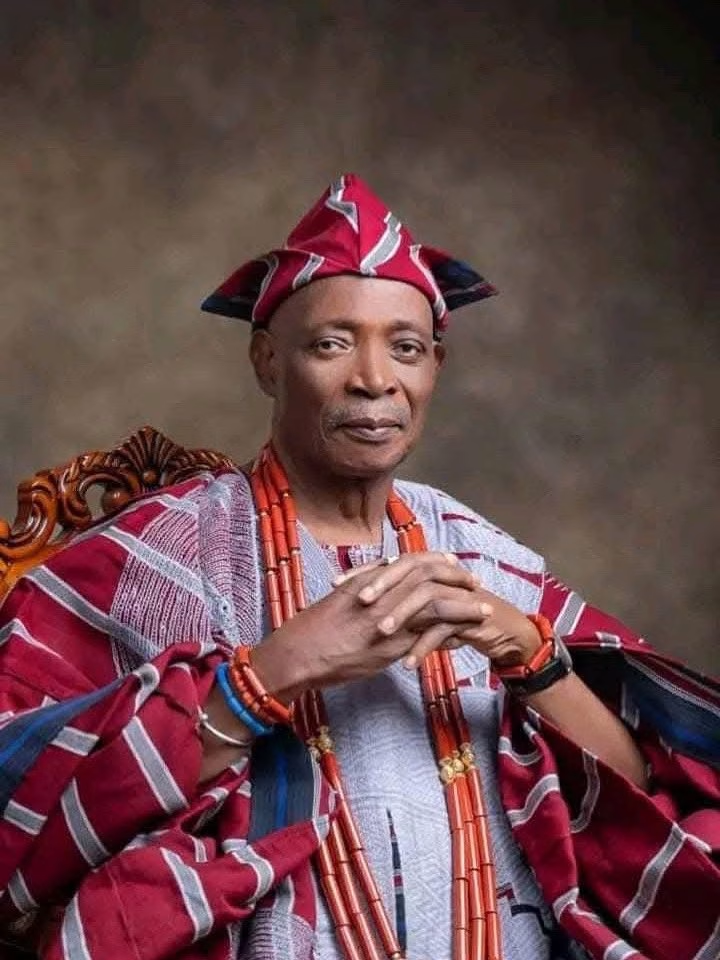
The odyssey of Senator Rashidi Adewolu Ladoja to the ancestral throne of Ibadan is not only historic but profoundly political, laced with trials and triumphs.
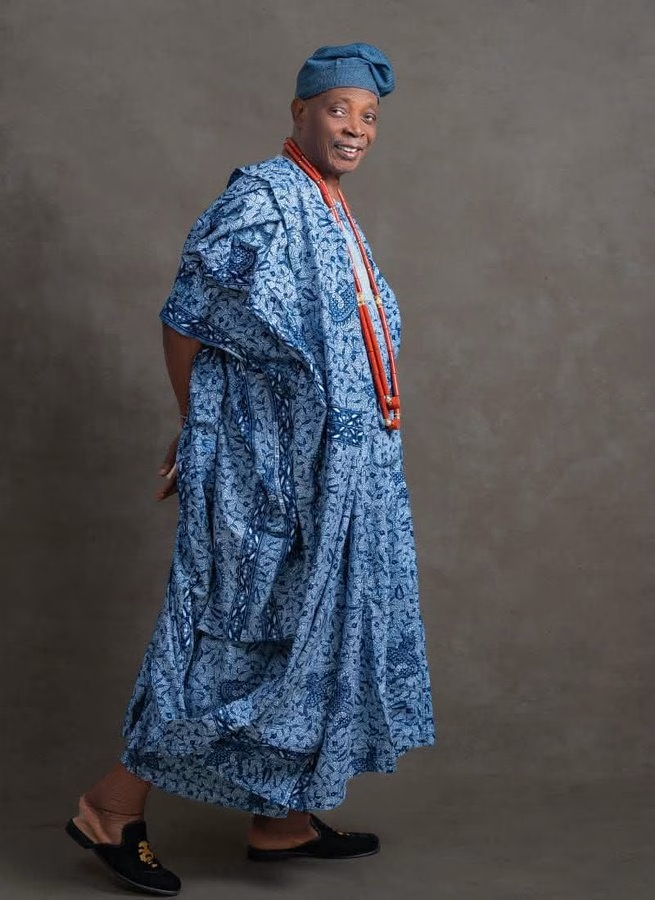
History often unfolds slowly, like a scroll revealing one line at a time. In Ibadan, a city steeped in tradition and resilience, history has once again taken a defining turn.
Oba Rashidi Adewolu Ladoja, former governor of Oyo State, businessman, politician, and activist, is now preparing to ascend the exalted throne as the 44th Olubadan of Ibadanland.
His decades-long journey, filled with trials, victories, and service, tells a compelling story of destiny, courage, and legacy. From political powerhouses to royal lineage, from boardrooms to the battlefields of democracy, Ladoja’s life blends tradition with transformation. His ascension is not only personal fulfilment but also a cultural and historical moment for Ibadanland.
Indeed, his coronation stands as a milestone, a testament to resilience, faith, and destiny fulfilled. On September 26, 2025, Oba Ladoja will be crowned the 44th Olubadan of Ibadanland, closing a circle that began 34 years ago when he became Mogaji of his family compound in Isale-Osi. But this is no ordinary coronation; it is the culmination of a saga defined by ambition, resistance, exile, betrayal, resilience, and ultimately, triumph.
Road to Royalty: From Mogaji to Monarch
It began in 1991 when Rashidi Ladoja became Mogaji (family head) of the Arusa compound in Isale Osi, a deeply rooted quarter in Ibadan South-West Local Government Area. That symbolic beginning marked the first step on Ibadan’s rigorous 36-step chieftaincy ladder, reserved for those destined to wear the revered crown.
The Ibadan succession system is unique among Yoruba kingdoms. Unlike other traditional stools where royal families are narrowed to specific lineages, the Olubadan system is remarkably open and transparent. Two lines of succession, the civil (Otun) and the military (Balogun), run concurrently, and candidates rise step by step until the next in line becomes Olubadan. It is an orderly system that rewards longevity, patience, and service, making the throne one of the most respected in Yorubaland.
On October 1, 1993, Ladoja was installed as Jagun Balogun Olubadan, formally entering the military line of succession. Over the next 31 years, he advanced steadily, surviving political turbulence, personal setbacks, and traditional disputes. Few endure the politically charged and physically demanding journey to the top, but Senator Ladoja did — with grit, patience, and determination.
“I never imagined destiny would call me to the throne at this time. It’s been one of patience, perseverance, and grace,” Oba Ladoja told a gathering at his Bodija residence after his official nomination.
Political Elite Meets Royal Heritage
In a city of warriors and statesmen, Oba Ladoja is the first former governor and senator to become Olubadan.
Trained as a chemical engineer in Belgium, he made his mark in oil, shipping, banking, agriculture, and transport before rising as a political force.
During the short-lived Third Republic, he was elected senator on the platform of the defunct Social Democratic Party (SDP). In 2003, he defeated incumbent Lam Adesina to become Governor of Oyo State on the platform of the Peoples Democratic Party (PDP).
Two years later, he was impeached in what many described as a conspiracy driven by then-President Olusegun Obasanjo and political strongman, Lamidi Adedibu. His reinstatement by the Supreme Court after 11 months in exile was more than a legal victory — it was a political resurrection. It cemented his reputation as “the indomitable warrior”, a man political opponents could not erase or ignore.
That resilience, combined with patient navigation of Ibadan’s chieftaincy system, has now borne fruit.
“It has been a bumpy journey filled with trials, but only made possible by the grace of God,” he told jubilant supporters.
Defiance and Reconciliation
Ladoja’s political career was often defined by principles that put him at odds with powerful figures.
In 2018, when then-Governor Abiola Ajimobi crowned Ibadan High Chiefs as kings, Ladoja stood alone in defiance. He rejected what he called a “carton-paper-made” beaded crown, declaring that the only crown worthy of him was the Olubadan’s. His refusal sparked years of political and legal confrontation.
“Why should I wear a crown not recognised by tradition?” he asked. “The throne is not for the desperate.”
Yet, in August 2024, in a radio interview, he softened his stance, saying unity was more important than pride: “The voice of the people is the voice of God. I am ready to accept the beaded crown if it will bring peace and allow me to serve the people of Ibadan.”
That statement shifted the atmosphere. His colleagues in the Olubadan-in-Council rallied behind him, and he was soon unanimously nominated and approved by Governor Seyi Makinde as the 44th Olubadan.
Unlike his clashes with Ajimobi, Ladoja’s relationship with Governor Makinde has been cordial and strategic. Makinde’s prompt approval of his nomination reflected a convergence of political and traditional power, a necessity in Oyo State where the Olubadan stool carries both cultural influence and political weight.
The Crown and the City
Ibadan is no ordinary city. It is the largest traditional Yoruba urban centre and the historic political capital of the old Western Region. The Olubadan, though largely symbolic, wields influence over millions.
For Oba Ladoja, this reign is not ceremonial. It is an opportunity to redefine the stool, blending cultural authority with political wisdom.
“I pray that my reign shall bring peace, prosperity, and progress to Ibadanland,” he said, calling for unity.
Expectations are high. From Oke Aremo to Abuja, all eyes are on him to redefine the modern monarch’s role not just custodian of rituals, but guardian of peace, diplomacy, and security. He has already urged coordinated efforts to secure Ibadan and Yorubaland amid rising insecurity.
The coronation of Oba Ladoja is more than a local event; it is a national stage. Expected guests include President Bola Tinubu, former Vice President Atiku Abubakar, Senator Rabiu Kwankwaso, former governors, business moguls, activists, and traditional rulers across Yorubaland and beyond.
Their presence underlines the symbolic place of Ibadan in Yoruba and Nigerian politics.
Activism, Sacrifice, and Legacy
Ladoja’s story is not just about royalty; it is about activism and identity. As a NADECO stalwart, he stood against military rule in the 1990s, supporting the pro-democracy struggle after the annulment of the June 12 election.
Chief Adeniyi Akintola (SAN) recalls: “We used his ships for NADECO’s activities after the Senate was dissolved. His businesses were seriously affected — he had a shipping line and the largest palm plantation in West Africa then.”
As governor, he challenged a sitting president. As High Chief, he resisted compromising tradition. As a businessman, he sacrificed fortune for democracy. Now, as Olubadan, he embodies the fusion of political power and cultural authority.
To former Nigerian Ambassador, Dr. Yemi Farounbi, “Ibadan is the intellectual capital of Nigeria. It provided security for the Yoruba in times of war. Peace must return, and the Olubadan must lead it.”
Professor Tunde Adeniran, a former minister, added: “He comes with experience and expansive networks. Expectations are high. We must rally around him.”
For younger Ibadan residents, his ascension represents continuity and hope. “We grew up hearing about his struggles as governor and his fight for justice,” said Akeem Alabi, a postgraduate student at the University of Ibadan. “Now he is our king. We expect him to stand for the people, just as he did in politics.”
The Crown After the Storm
For many, the crowning of Oba Rashidi Ladoja is poetic justice, a fitting epilogue to a life of battles in politics, business, and tradition.
From Mogaji in 1991 to Olubadan in 2025, from impeachment to reinstatement, from defiance to reconciliation, he now wears the crown not as a reward but as a responsibility.
The royal father is no longer just the “cat with nine lives”; he is the king whose destiny has come full circle.
Governor Seyi Makinde has expressed readiness to work seamlessly with Oba Ladoja towards the development of Ibadan city, describing the new monarch as an exemplary leader whose wealth of experience in politics, business, and community service will enrich the Olubadan stool.
Makinde recalled that his own political journey could not be written without Ladoja’s role, stressing that: “Baba remains a father figure whose guidance has shaped many of us. I hold him in high esteem, and I believe Ibadan and Oyo State will benefit from his reign as Olubadan.”
As Ibadan embraces this new chapter, the coronation of Oba Rashidi Adewolu Ladoja stands as both history and prophecy fulfilled a story of destiny, resilience, and triumph, written across the canvas of politics, tradition, and legacy.
CULLED FROM THE GUARDIAN
Feature
𝗜𝗻𝘁𝗹. 𝗗𝗮𝘆 𝗼𝗳 𝗣𝗲𝗮𝗰𝗲: 𝗛𝗼𝗻. 𝗢𝘁𝘂𝗼’𝘀 “𝗡𝗼 𝗗𝗶𝘀𝗰𝗿𝗶𝗺𝗶𝗻𝗮𝘁𝗶𝗼𝗻 𝗣𝗼𝗹𝗶𝗰𝘆” 𝗮 𝗣𝗮𝘁𝗵𝘄𝗮𝘆 𝘁𝗼 𝗣𝗲𝗮𝗰𝗲𝗳𝘂𝗹 𝗔𝗻𝗱𝗼𝗻𝗶
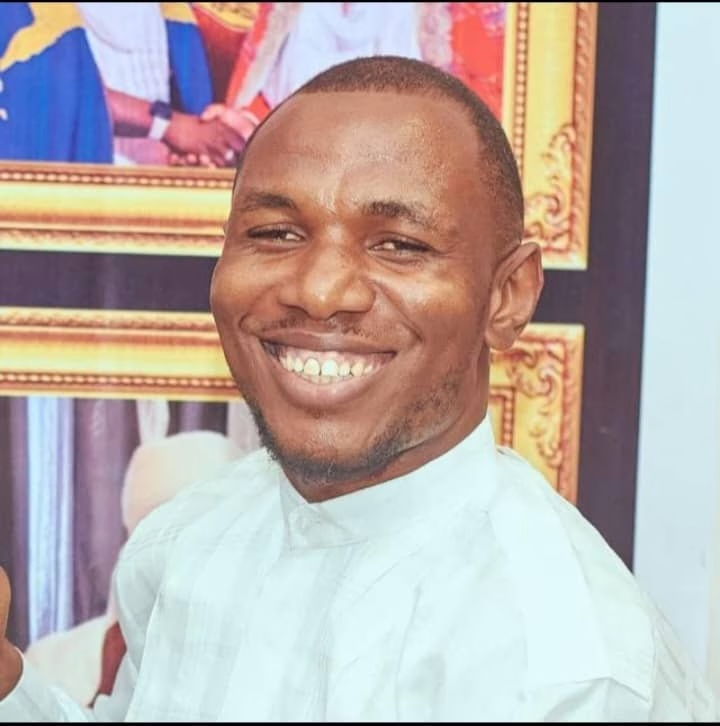
By Ima-owaji G. Shedrack
As the world commemorates the International Day of Peace, attention has once again shifted to the bold and inclusive policies of the Chairman of Andoni Local Government Area, Hon. Promise Lucky Otuo, whose leadership style has been described as a model for peacebuilding and sustainable development.
Since assuming office, Hon. Otuo has consistently emphasized that his government is a “no discrimination government,” a philosophy set to guide his policies and programs across the council.
In a remarkable demonstration of this principle, the Chairman extended empowerment opportunities not only to indigenes but also to non-indigenes residing and trading in Andoni. This inclusive approach, observers say, has deepened trust, fostered unity, and reduced the tensions that often arise from feelings of neglect or inequality.
Mr. Ima-owaji G. Shedrack, a stakeholder in the Renewed Hope family, applauded the initiative, noting that Hon. Otuo has shown that peace is not just about preventing conflict but also a conscious steps in building an environment where fairness and inclusiveness are at the center of governance.
“As Andoni joins the world to mark the International Day of Peace, Hon. Lucky Otuo’s leadership style that is anchored on ‘no discrimination’ is built to offer a clear roadmap, where peace is not only preached but practiced through deliberate policies of fairness and equal opportunity.”
Follow BONA NAIJA for more
Feature
Eid-ul-Mawlid: Uphold Hon. Lucky Otuo in your prayers, Ima-owaji Shedrack Urges non indigenes in ANOLGA

A stakeholder in Andoni Local Government Area of Rivers State, Ima-owaji Shedrack, has called on Muslim faithful in the area to remember the Chairman of Andoni LGA, Hon. Lucky Promise Otuo, in their prayers as they celebrate Eid-ul-Mawlid, the commemoration of the birth of Prophet Muhammad (SAW).
Speaking on Friday during the nationwide celebration, Ima-owaji stressed the importance of continuous prayers for leaders at all levels, describing Hon. Lucky Otuo’s administration as one that transcends sentiments, tribal lines, and religious differences.
“The government of Hon. Lucky Otuo is one beyond discrimination. Both indigenes and non-indigenes are carried along. This is why I urge our Muslim brothers and sisters to use this sacred celebration to pray for him and for the peace, progress, and prosperity of Andoni LGA,” Ima-owaji said.
He further noted that the Eid-ul-Mawlid celebration provides Muslims with another opportunity to renew their commitment to unity and inclusiveness, while also offering prayers for leaders who are steering the affairs of the people with sincerity.
Ima-owaji urged residents of Andoni, regardless of religion or origin, to embrace peace and support the development agenda of Hon. Otuo’s administration, which he said is focused on progress and inclusivity.
Follow BONA NAIJA for more
Feature
What to Know About CBN’s New Geo-Tagging Requirement for POS Terminals
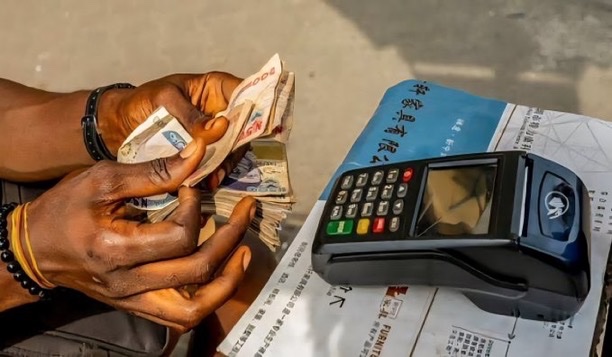
The Central Bank of Nigeria (CBN) has issued a new directive requiring all Point of Sale (POS) terminals to be geo-tagged within the next 60 days, a move designed to curb fraud, enhance oversight, and modernize Nigeria’s digital payment ecosystem.
According to a circular released on August 26, 2025, any terminal not geo-tagged will be deactivated from October 20, 2025.
“This initiative is designed to ensure that all PoS terminals are traceable and that transactions are secure. Terminals operating outside their registered location will be flagged, and non-compliant devices will be deactivated,” the CBN stated.
Here’s a breakdown of what the policy means for operators, agents, merchants, and customers.
What Geo-Tagging Means
Geo-tagging is the process of embedding location data, such as latitude and longitude, into a digital device.
For POS terminals, this means linking each machine to its exact physical address using GPS technology, creating a traceable digital footprint that makes every device verifiable and harder to misuse.
The CBN’s Key Requirements
- Geolocation Features
All POS devices must have GPS and dual-frequency receivers for accurate location tracking. - Real-Time Location Transmission
Terminals must capture and transmit their exact location at the start of every transaction. - Geofencing
Each POS terminal will be restricted to a 10-metre radius around its registered location. Transactions outside this zone will be flagged for investigation. - Registration
Licensed banks and fintechs—such as Moniepoint, OPay, PalmPay, and others—must register each device with exact merchant coordinates through a payment aggregator. - New Devices
No new terminal will be certified or activated without geo-tagging.
Why Geo-Tagging Matters
- Crackdown on Fraudulent Terminals
Geo-tagging eliminates “ghost” or cloned devices and reduces card fraud, unauthorized withdrawals, and misuse of mobile POS machines. It also disrupts ransom collections and terrorism financing through untraceable transactions. - Better Oversight and Transparency
Regulators gain real-time visibility of nationwide transactions, improving fraud detection and aiding financial inclusion strategies by identifying underserved areas. - Boosting Consumer Trust
Customers gain stronger protection knowing every POS is tied to a verified address, building confidence in digital payments.
Impact on Stakeholders
- Banks & Fintechs
Institutions face the challenge of upgrading thousands of terminals and registering them within 60 days, requiring both funding and logistics. - POS Agents & Merchants
Operators must work strictly within 10 metres of their registered business location, potentially disrupting mobile POS services that move around to serve customers. - Customers
Shoppers stand to benefit most, with safer and more transparent transactions in Nigeria’s payment system.
Conclusion
The CBN’s geo-tagging directive is one of the most sweeping reforms in Nigeria’s digital payments landscape. While it presents operational hurdles for banks, fintechs, and agents, it promises stronger security, fraud reduction, and renewed consumer trust in the long run.
Follow BONA NAIJA for more
Feature
Goodluck Nwaneri Pays Condolence Visit To The APC National Chairman
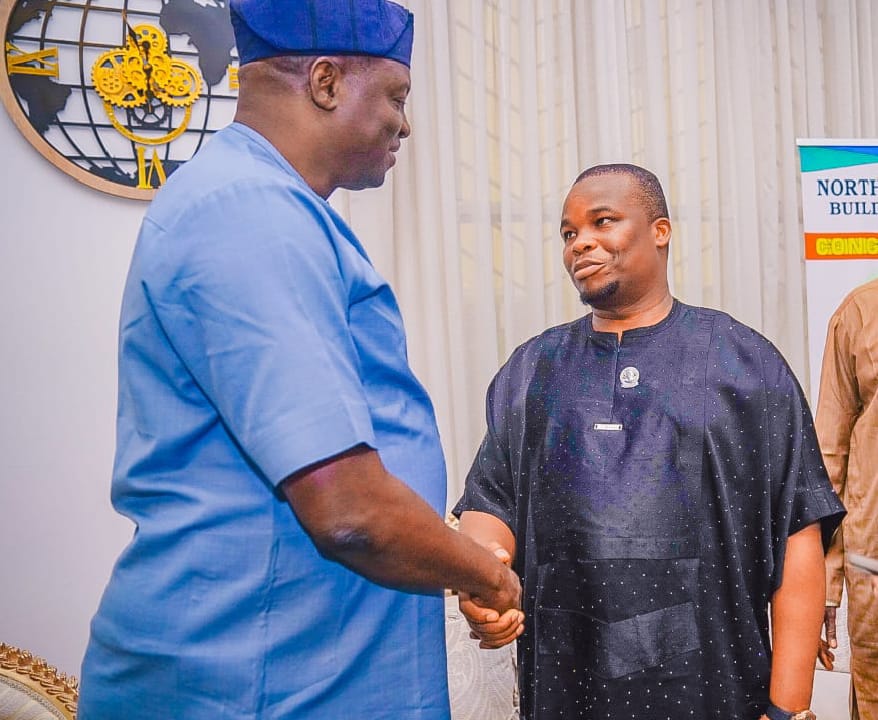
Chief Goodluck Nwaneri, a Director city boy movement, has paid a condolence visit to the APC National Chairman, Prof. Nentawe Yilwatda, at his residence in Abuja, following the passing of his beloved mother, late Mrs. Lydia Toma Yilwatda.
During the visit, Chief Nwaneri expressed his deep sympathy to Prof. Nentawe and the entire Yilwatda family, describing the death of a mother as a painful and irreplaceable loss. He noted that the late Mrs. Lydia Toma Yilwatda lived an exemplary life of faith, humility, and service, evident in the leadership qualities and values instilled in her children.
Chief Nwaneri prayed for the peaceful repose of her soul and asked God to grant the APC National Chairman and his family the strength and fortitude to bear the painful loss. He also encouraged them to find comfort in the enduring legacy their mother left behind.
He further reaffirmed his solidarity with Prof. Nentawe in this moment of grief, while urging the family to remain strong and united in honoring the life and memory of their departed matriarch.
-
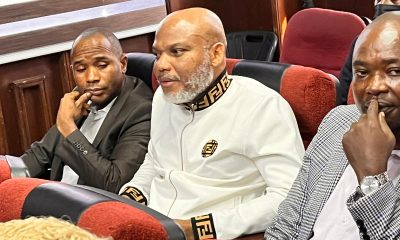
 Abuja2 weeks ago
Abuja2 weeks agoIPOB Leader Nnamdi Kanu Declines to Enter Defence, Insists “No Case” Against Him
-

 Music News3 weeks ago
Music News3 weeks agoFlavour Unveils ‘Afroculture’ Single Featuring Baaba Maal, Directed by TG Omori
-
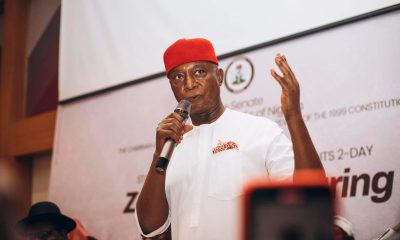
 Lifestyle3 weeks ago
Lifestyle3 weeks agoNed Nwoko Drops Bombshell, Says ‘Men Marrying Multiple Wives Are Helping Women’
-

 World News3 weeks ago
World News3 weeks agoTwo Killed, Two Injured as Plane Bursts Into Flames After Takeoff Crash in Venezuela
-

 Travel3 weeks ago
Travel3 weeks agoFRSC Flags Off 2025 Ember Months Campaign, Unveils Contactless Biometric Driver’s Licence System
-

 News3 weeks ago
News3 weeks agoNed Nwoko Gives Reason for Clash with Regina Daniels
-
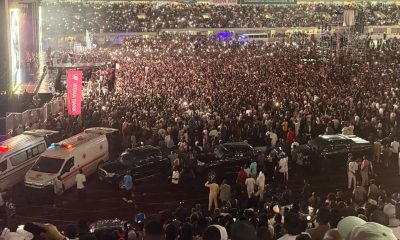
 Entertainment2 weeks ago
Entertainment2 weeks agoDavido Kicks Off ‘5ive Alive’ Tour with Sold-Out Uyo Stadium Show
-
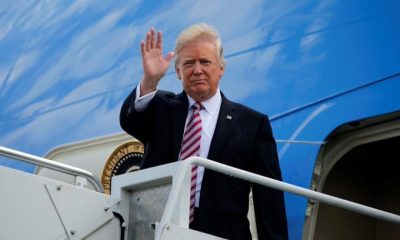
 World News2 weeks ago
World News2 weeks agoTrump asks Pentagon to immediately start testing U.S. nuclear weapons
-

 World News6 days ago
World News6 days agoUS Military Submits Contingency Plan for Action in Nigeria
-
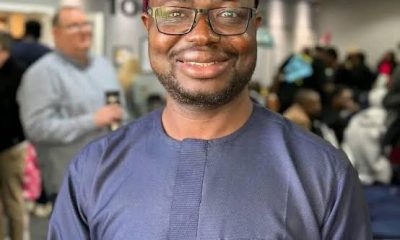
 News3 weeks ago
News3 weeks agoBREAKING: Tinubu Nominates Dr. Bernard Doro as New Minister from Plateau State


